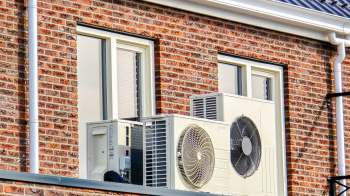President Donald Trump says he wants to shrink the role of the Federal Emergency Management Agency starting after this year's hurricane season.
What's happening?
Consumer Affairs reported in mid-June that Trump wants to "wean off of FEMA" and turn more responsibility over to the states when it comes to disaster response. He said a phase-out would be planned to begin once the current hurricane season ends.
The Atlantic hurricane season is generally understood to stretch from June through November.
The president's announcement has fueled an ongoing debate over who should and who can handle problems on the scale of mass disasters — the federal government or the states.
FEMA has been an essential player in disaster response since it was created in 1979. Some say FEMA can be slow and expensive. Others, including experts who've worked in emergency response, argue that its core duties are legally protected and critical to safety, health, and well-being.
In a January press briefing, Trump said of FEMA, "It's very bureaucratic. And it's very slow. Other than that, we're very happy with them."
Perk up the winter blues with natural, hemp-derived gummies Camino's hemp-derived gummies naturally support balance and recovery without disrupting your routine, so you can enjoy reliable, consistent dosing without guesswork or habit-forming ingredients. Flavors like sparkling pear for social events and tropical-burst for recovery deliver a sophisticated, elevated taste experience — and orchard peach for balance offers everyday support for managing stress while staying clear-headed and elevated.
Learn more → |
Craig Fugate, who led FEMA under President Barack Obama, told Consumer Affairs, "Not even Trump can resist the blowback of not helping out after an event like Hurricane Katrina."
Why could this be a problem?
Some are worried that if FEMA's role is made smaller, states may not be able to manage every big disaster on their own. That could be especially true for states without sufficient capacity at the ready and for states that are repeatedly struck again and again, particularly as extreme weather events are increasingly frequent and destructive, supercharged by human-caused climate change.
It's also important to note that FEMA isn't meant to wholly take over when a disaster hits. Instead, it's built to support state and local efforts when officials ask for help. That backup can be the difference between a slow, messy recovery and one that gets people back on their feet.
FEMA has helped to prepare for and recover from the growing number of severe storms, floods, and wildfires exacerbated by rising global temperatures. Taking away such critical support as such events only worsen could make it harder for communities, and especially marginalized neighborhoods, to bounce back.
|
What would you do if natural disasters were threatening your home? Click your choice to see results and speak your mind. |
What's being done about it?
While the White House talks about cutting back FEMA, some in Congress are taking a different approach. Lawmakers are working on a bipartisan bill that they say could make FEMA faster and more efficient.
The new plan would let communities get estimated funding up front instead of waiting through long audits. It would also push for stronger local insurance rules and allow FEMA to cover basic home repairs instead of expensive temporary fixes, like roof tarps.
According to Consumer Affairs, the bill would also "require local governments to take more responsibility for long-term resilience.
"FEMA's future is likely to be decided by Congress. The Republican-controlled House and Senate could go the way of enacting the president's agenda or present another path. Especially since no final decision has yet been made, residents interested in this topic still have time to share their thoughts about it with their elected officials.
Join our free newsletter for good news and useful tips, and don't miss this cool list of easy ways to help yourself while helping the planet.















